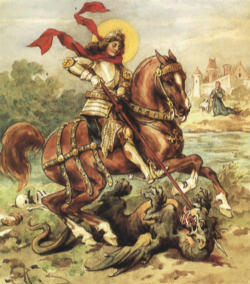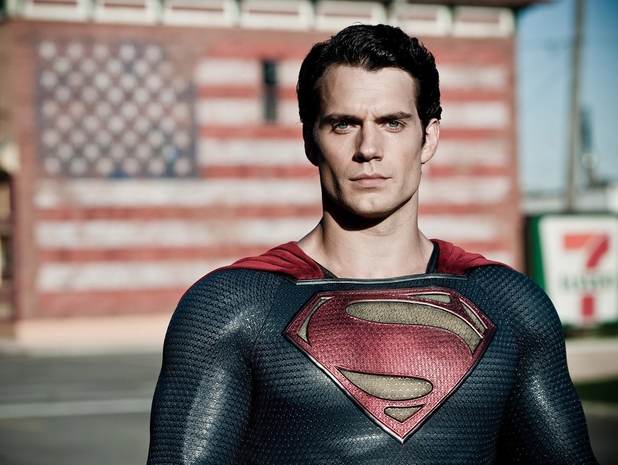Girls, you see a cute guy. Instantly, you hope you have the chance to get to know him better. You make yourself available, you introduce yourself, you make small talk with him. Eventually, you get to know him a bit and he seems like a swell guy.
But then nothing happens. Over and over. Maybe he wasn’t interested after all? Or maybe there’s a lot going on in his mind that women don’t quite understand.
It’s not hard to look around and notice that there’s a problem in dating. Our culture has shifted dramatically over the past few decades, especially with the increase in technology.
With dating, it seems to have responded to these changes with two extremes: the first is the “hookup” culture, where men and women go from complete strangers to sexual partners in a very short amount of time.
The second extreme makes dating too serious. These relationships take too long to develop and very often, the guy is paralyzed to even ask the girl out.
While men may have always struggled with mustering up the courage to ask a girl out, the problem seems to have gotten worse.
Several college men weighed in and expressed their take on what the problem is, and why it’s become more of a problem. Ultimately, all of them agreed, this problem stems from a man’s fear of rejection.
“In the secular world, it’s hard because he wants to get into her pants before her heart. [The other extreme is] men are afraid that they’re going to screw up the relationship and are afraid of that failure,” said Peter Ambrose, a business student.
“I call it the ‘rifle effect’. Guys just want to shoot once, but the odds are way better off with a shotgun.”
One of the biggest reasons, besides fear, that men don’t ask women out is a lack of commitment, Ambrose said.
“In the hookup culture, there is no responsibility. Why commit when you can have pleasure?” Ambrose said.
Sure, fear of rejection is a legitimate obstacle to overcome in pursuit of a woman. But why does this problem seem more pronounced now? Stanton Skerjanec, a political science student, believes the 1960’s sexual revolution played a significant part in the shift of today’s dating scene.
“There was a blur between feminine and masculine. Sexism was a real thing, but feminism was devastating,” he said.
He thinks that because radical feminism encouraged women to take on masculine roles, the men became more passive, and sometimes, even feminine.
Another huge factor in the dating problem to consider is the advancement in technology. While it has developed leaps and bounds in a very short span of time, it also carries with it some cons, including a culture that has become less personable and in tune with meaningful social interaction.
“With new technology, we have the possibility of making so many connections,” said Ryan Bax, an engineering student. “We can meet so many more people. Back then [before modern technology], there was less opportunity, so you had to take that chance. Now you can still meet a lot of people.”
“Back then, we didn’t have multimedia and all these things we kind of use as a crutch,” said Thomas Defilippis, a math and English student. “I don’t believe in having a conversation in text — it’s trying to impress. It’s an idea of who that person is. It needs to be in person so you can see body language.”
Although our dating scene has been affected by fear of rejection or commitment, feminism and technology, these men all agreed that to counteract the problem, it’s helpful to be friends first.
Ambrose shared that in his opinion, there should be four steps to a naturally progressing relationship. Step one begins with friendship. Step two moves to a one on one relationship, where the man asks a girl on a casual date, such as going to coffee. Step three is “courtship and dating”, where the relationship becomes more exclusive and committed. Step four is “engagement and discernment”, when the couple is more intensely discerning whether they should marry.
Skerjanec agreed with this theory of natural progression.
“We don’t give casual dating enough credit … it’s like a flower. It has to bloom, not burst forth,” he said.
“Deepen friendships first. A lot of people put on a face with dating. When you’re friends first, you get to see their real face first,” said Joseph Poretta, a business management and marketing student.
“Ask friends on dates! One date won’t ruin a relationship, and be up front. There’s gotta be girls in mind that you’re dying to get to know — or you’re just being too picky,” Bax said.
A huge gray area of miscommunication, however, is flirting. It’s difficult to appropriately show interest and will almost always look different in every person. And while all of these men agreed that while it was appropriate for a girl to flirt and show interest, the man should be the one initiating a relationship.
“I’m a big fan of the guy doing all this. The guy should ask out. Flirting adds excitement to friendships, but it’s a gray area. I’m totally okay with it. But if it goes on for too long, it can be confusing and someone needs to step up and say something,” Bax said.
And while friendships with the opposite sex are wonderful, if you’re pursuing a relationship, at some point, a man just needs to step up and actually ask.
“When asking a girl out, it should be very intentional. You really have to step out and just go for it. The guy has to take control, the guy has to make the move, even if he doesn’t know,” Defilippis said.
“I think that’s the healthy way. I lay down my pride and my dignity, and she could say no. But that’s the way it has to be done. It’s very nerve-racking and girls don’t know how scary it is.”
In the end, the state of dating is not doomed — but its problems are something to be aware of. And though it’s tempting to complain about the challenges, it can be motivation to be the best example of balance in our lives, even in the area of dating.
And yes, there are good men out there.
“For those that say chivalry is dead, chivalry is not dead, they’re just looking in the wrong places,” Defilippis said.






